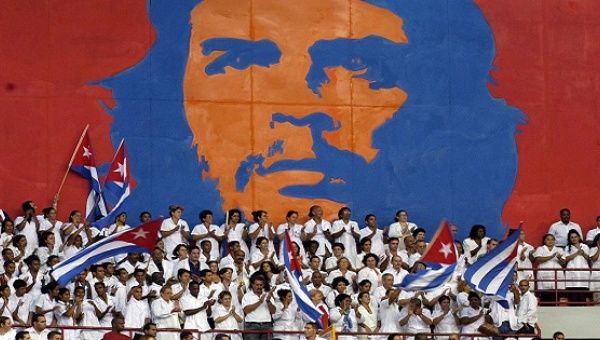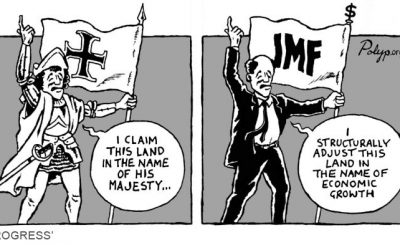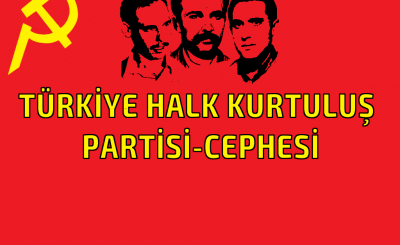The spirit of internationalism, which reached its highest point in the 1960s with the revolutionary personality of Che, began to degenerate in the 1970s and be extinguished as a result. As one of the most important examples of this we can adduce the way internationalism was rejected in the decisions of the CPSU, which found expression in indifference towards revolutions, and which was rightly criticised by the Chinese Communist Party, who however did not maintain this attitude to the end. In the following years the Chinese party succumbed to the logic of “the enemy of my enemy is my friend” as part of the theory of “social imperialism” they developed. This position weakened thoughts of internationalism and made them degenerate. In the course of time this led to the issue of internationalism almost disappearing among them in relation to socialism as a whole, instead of as a matter for just a few countries and Marxist-Leninist movements.
While the lack of international solidarity and aid, on the basis of equality and fraternity of the peoples of the world, with the aim of maintaining a common attitude towards imperialism and seeking a future of voluntary unity, caused setbacks in national and social liberation struggles in oppressed countries, the same lack also shook belief in socialism.
In this phase, the weakening of international ties went hand in hand with “socialist state pragmatism”. While many socialist states thought it important to develop ties in the international political arena primarily with a view to serving their own interests, revolutionary movements which expected “a lot” from the socialist countries experienced moments of tragedy in their history.
As though all this were not enough, Gorbachev, who let the prestige of socialist countries sink, was completely negative towards revolutions after 1985, seeing them as “sparks which could cause world war”. This attitude caused a major loss of morale among peoples seeking liberation. These objective developments, which were painful for socialism, also gave imperialism new strength. In this sense, Gorbachev’s policies, which left the oppressed of the world in the lurch, and which consciously allowed the socialist countries to be swallowed up by the imperialists, bear the greatest degree of responsibility for the fact that imperialism became an even greater “evil” for the peoples of the world.
From the standpoint of the peoples of the world, it was a misfortune that the Gulf War broke out at a point when the revolutionary organisations were being left to their fate and an attempt was being made to forget internationalism. But at the same time it was fortunate that during the war new examples of international solidarity and the struggle against imperialist hegemony appeared. From this point of view, the Gulf War reminded socialist countries and revolutionary organisations of their urgent tasks and laid bare a painful period in history filled with historical lessons.
Since it is necessary for revolutionaries to fulfil their historic tasks together with other political forces and create international solidarity, they must, in an ever broader and more principled way, win the trust of peoples oppressed by imperialism and support every anti-imperialist struggle which strikes blows at imperialism. Only at the end of such a process can the national and group prejudices which exist in people’s heads be destroyed. So every organisation calling itself Marxist-Leninist should show loyalty towards these principles. Being a principled Marxist-Leninist means showing consistent anti-imperialism. This should also be the lesson the Gulf War teaches the left in our country.
Those who thought that the warplanes which dropped tens of thousands of bombs were only attacking the people of Iraq were deceiving themselves. For what the imperialists, who used all the means of inflicting death they had at their disposal, called “restoring order in the world and the Middle East”, was actually a means of establishing the “stability” of imperialist exploitation. In this war, which was also fought with the “unilateral information bombs” of the media and communication monopolies,they tried to show the oppressed peoples what the price of upsetting the status quo established by imperialism through the “democracy game” would be. When imperialism used almost all its means of destruction and propaganda in the Gulf War, the revolutionaries also had to make active use of their strength against imperialist tyranny. This task, in the absence of “international brigades”, is a historically significant task of the individual revolutionary organisations of the world. Revolutionaries and progressives could not avoid such tasks. It would be a mistake to not demand a very heavy reckoning when one sees how arbitrarily imperialism behaves in the Middle East.
The mass actions which were carried out in the developed and the neocolonial countries and which grew in scale, and which were supplemented by radical revolutionary actions, satisfied the revolutionary, democratic and progressive layers of the people. They raised the morale of those who were resisting imperialism and its collaborators. They unmasked imperialism which sought to deceive the world with one-sided information, and struck blows at it which to some degree counteracted its show of strength.
Another side of the actions is the one we have already touched on, the revival of the spirit of internationalism. So at this point in recent times names like Devrimci Sol in Turkey, the Tupac Amaru Revolutionary Movement in Peru and the IRA in England came into the foreground. Besides these, voices have been attracting attention in Germany, France, Italy, Lebanon, Iran, the Philippines, Ecuador, Jordan and other countries.
Admittedly we cannot say that what was achieved was enough. In such a dirty and unjust war it was the unquestionable task of the time to administer strong blows to imperialism which had declared war on the oppressed peoples of the world in general but especially the Arab, Turkish and Kurdish peoples. If there is a task today to equip the masses with a sense of international solidarity, then we must be sure that we can only fulfil this task by fighting. As the leader of the revolution in Guinea-Bissau, Amilcar Cabral, put it, “The basis of solidarity is very simple. To fight.”
The socialist world today is confronted with an overwhelming struggle over matters of trust and ethics because of the terrible gulf between theory and practice, words and actions.
A “socialist” who says “one, two, many Vietnams” or “long live socialism” but who does not put this into practice is the greatest example of someone who talks but fails to act. This is not the behaviour of proletarian socialists but of petit bourgeois. The Gulf War underlined the following. It showed that the basic task of Marxist-Leninists is to develop “new people” who are equipped with a sense of international consciousness, who judge an attack by imperialism to be an attack directed against themselves and are glad when the peoples hold aloft the banners of freedom. Those who do not educate the masses in the international consciousness displayed by Che, will learn, even if not today (just like the socialist countries have experienced) that they will have to pay an even higher price in the future.




